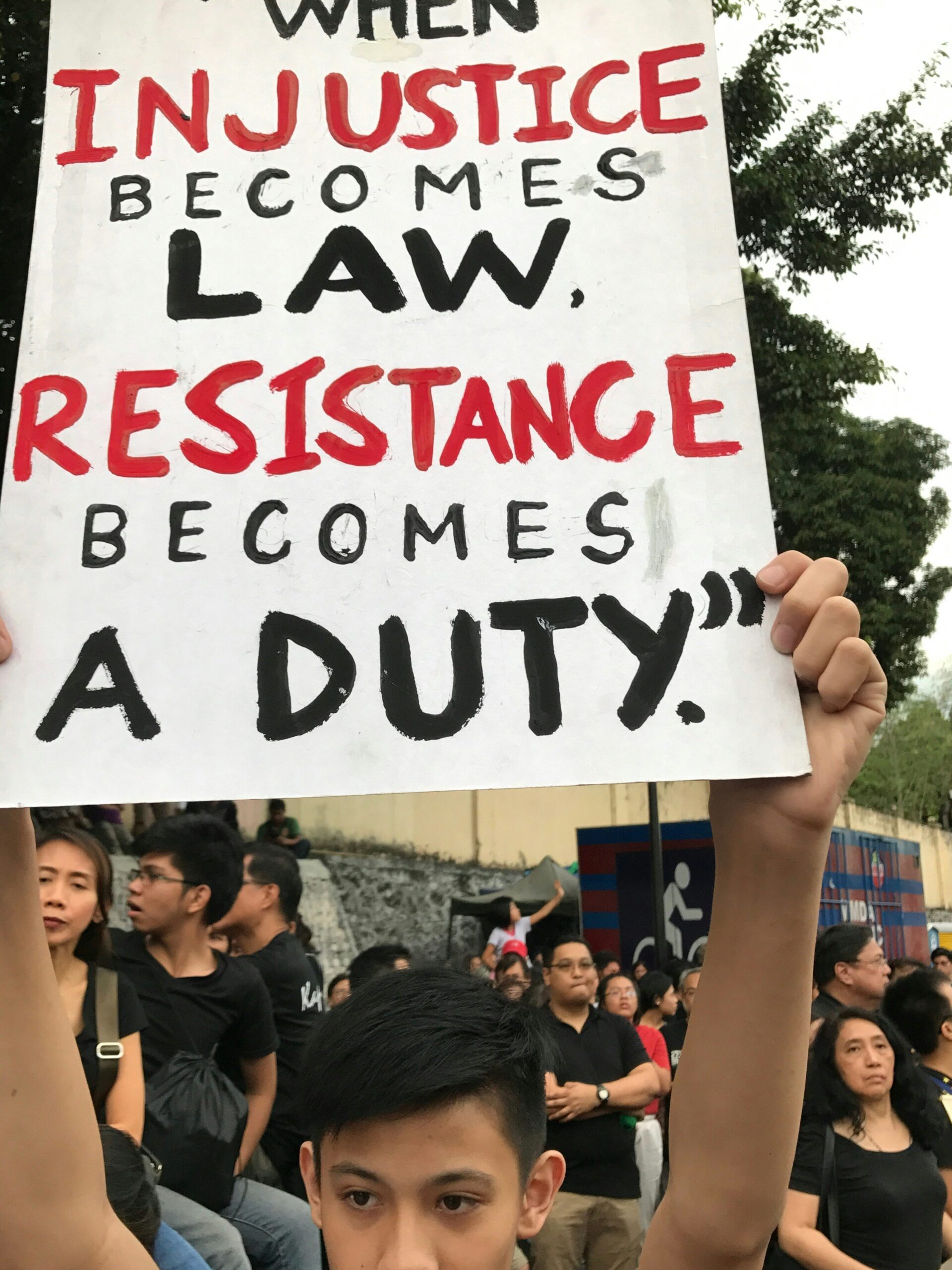Since August 2023, we have been experimenting with the idea of advocacy labs. The big idea was to ensure that we broaden ordinary citizens’ participation in advocacy by training them on a how to run an advoccay campaign. The labs are centred around what citizens had seen as the top priority for the Zimbabwe government to focus in relation to unemployment, corruption, and price instability. Through our annual Citizens Perceptions and Expectation Surveys, Zimbabwean citizens indicated corruption as one of the public problems that needs to be addressed. Citizens consistently saw corruption as the top hindrance to the effectiveness of both their local and central government.

The term “wicked problem” was first coined by Horst Rittel, a design theorist and professor of design methodology. These are problems with many interdependent factors making them seem impossible to solve. A very important point to note about wicked problems is that solutions are neither true nor false, they can only be good or bad. Our Corruption Policy Advocacy Lab had 23 participants working together in providing possible actions towards addressing this “wicked problem”.
While corruption is a national problem that hinders the development of a country on a larger scale, the Lab also revealed the devastating impact of corruption on social structures and individual lives. Social pathology, a concept that encompasses the violation of social structures and behaviours, has been rising due to corruption in Zimbabwe. Participants in our 2023 Corruption Policy Advocacy Lab shared heart-wrenching experiences of how corruption has ravaged their lives, denying them economic opportunities and basic services.
One participant explained how they have been affected by corruption,
“Corruption has destroyed my life completely because everything I need, I should pay a bribe to get it, be it getting a job, driver’s license, lost national identity card, medical attention. You must pay someone to get that service, or you will wait forever to get it”
Policy Lab Participant 1, 2023-2024
Other participants described a society where bribery has become the norm, eroding the fabric of a community and the concept of Ubuntu (humanity towards others). One participant poignantly noted,
“You can’t even send a child on an errand without them asking for something in return.”
Policy Lab Participant 2, 2023-2024
The magnitude of corruption has spawned various social ills, perpetuating a cycle of harm. Communities have witnessed social decay and injustice. A number of concerns were raised by our Advocacy Lab participants, these included:

‘The taking of our community ground by an individual with political connections so as for him to chase his business interests has left youths without recreational facilities exposing them to risks of turning to drug abuse.
Policy Lab Participant 3, 2023 to 2024
“Corruption affected my ability to get justice after I was a victim of domestic violence. My ex-boyfriend paid the police to destroy the docket I opened against him.”
Policy Lab Participant 4, 2023 to 2024
Corruption affects us women in Zimbabwe. We suffer a lot from domestic violence. Our cases end up not being heard as our abusers pay bribes to the police. We end up not reporting our cases.
Policy Lab Participant 5, 2023 to 2024
No development,
Policy Lab Participant 6, 2023 to 2024
Rape cases of a minor or adult rape covered up by police
Conflicts among people
Policy Lab Participant 7, 2023 to 2024
Everyone in the community is now corrupt to the level that you cannot find a room to rent without paying a bribe token.
Policy Lab Participant 8, 2023 to 2024
Social fabric continues to deteriorate, and families now murder each other.”
Policy Lab Participant 9, 2023 to 2024

However, our advocacy lab participants offer a beacon of hope. They believe that community engagement, awareness, and collective action can restore sanity to our society. They advocate for a multi-pronged approach, including supporting whistleblower protection and resisting bribery, to combat corruption. Participants believe that, through community gatherings and engagements, “elders can teach and raise awareness to children against the scourge of corruption and how it is an obstacle to economic and social development. This ensures that they grow with the right mindset against corruption not looking forward to benefitting from it.” They encouraged public discussions, and events like road shows that promote transparency and accountability within the communities. Community leadership involvement in leading by example and modelling ethical behaviour will see a great change in rebuilding a culture of integrity and resilience.
Restoring culture and social norms takes time, effort, and collective responsibility, Communities need to organise collective activities that foster a sense of shared responsibility and social cohesion. Participants in our Advocacy lab alluded that starting with the ordinary citizens in communities to fight corruption will ignite the same spirit in other entities and stakeholders to work towards the same goal of abolishing corruption in Zimbabwe.
In conclusion, the fight against corruption in Zimbabwe requires a collaborative effort from all citizens, state, and non-state actors. We must recognise the devastating impact of corruption on our social fabric and work together to restore the values of Ubuntu/Hunhu and humanity. By harnessing the power of community engagement and collective action, we can create a society that promotes social justice, sustainable development, transparency and accountability, and the well-being of all citizens.
